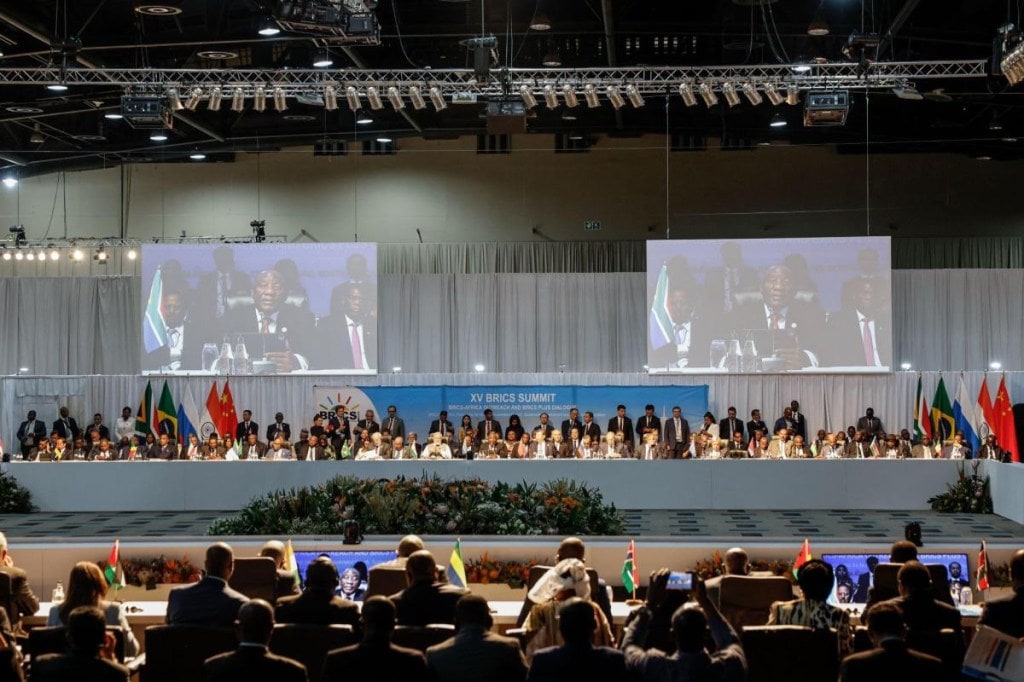Of more than two dozen applicants, there were some 40 hopefuls; notable omissions today from the BRICS bloc expansion are Indonesia, Nigeria and Venezuela. Formal Expression of Interest (EoI) was received by the government of South Africa from leaders of 23 countries, Algeria, Indonesia, Cuba, Bolivia, Honduras, among others.
BRICS acronym will officially change when six new members — Argentina, Egypt, Ethiopia, Iran, Saudi Arabia and the UAE — join the club as full members starting January 1st 2024.
Would the expansion make the grouping more incoherent, as critics fear?
Four of the five new members are members of the OIC – a perennial critic of India’s handling of the Kashmir issue. Would Indonesia’s omission impact India’s Act East policy? China had been keen; while India reportedly was among the most reluctant to the idea of expansion.
Sharing his views with Financial Express Online, Prof Abdul Nafey, formerly at JNU says: “Few things are clear: One, the expansion doesn’t give the grouping an anti-west tilt. Two, it arrests the tilt towards geopolitics and emphasizes that BRICS remains primarily a geo-economic grouping. Three, the entry of the wealthy Saudi Arabia and UAE might boost the idea of intra-BRICS trade in local currencies. The trend is already there: Argentina and Brazil use Renminbi to trade with China; India paid in rupees for oil purchase from UAE.”
“BRICS represents 26 percent of global GDP and 16 percent of trade; trading in local currencies would have ripple effects. Finally, Egypt is a member of the New Development Bank (NDB); and if new subscribers join in due course of time, it would enhance the lending capacity of the NDB – stalled to an extent under the Western sanctions on Russia. The above should all be a matter of satisfaction to India which had reportedly been working most assiduously on laying down strict safeguards and objective criterion for an expansion,” explains Prof Nafey.
Win-win situation
In his opinion the expansion is a win-win situation. “Brazil was keen on Argentina. Egypt and Ethiopia along with South Africa give a due representation to Africa; inasmuch, there has been a recent resurgence in Russian activism in Africa. Expansion would ostensibly enhance China’s clout in the grouping and help expand its Belt & Road Initiative across the new members.”
India & expansion
“All the new members are the primary focus of India’s strategic thrust under Prime Minister Narendra Modi. Under its ‘Look West’, Indian foreign policy has repeatedly underscored the strategic and economic importance of ties with Egypt, Saudi Arabia, UAE. Iran is a strategic partner to access Central Asia. Argentina is a strategic partner and potential market,” he adds.
The Ukraine conflict has increased geopolitical polarisation; as does rising China-US friction make countries look for options. Emerging economies and developing countries see BRICS as a mechanism to safeguard their strategic autonomy. BRICS is turning into a movement for multipolarity; hence expect more clamouring for membership.

